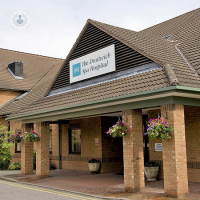Soft tissue sarcoma
Mr Stephen Veitch - Orthopaedic surgery
Created on: 07-16-2015
Updated on: 09-15-2023
Edited by: Sophie Kennedy
What are soft tissue sarcomas?
Soft tissue sarcomas are a type or group of very rare cancers that begin in the soft tissue which support and connect one's body structure.

In what tissues are soft tissue sarcomas normally present?
There are many tissues that can be affected by soft tissue sarcomas. The main ones include the following:
- muscles
- blood vessels
- fat
- tendons
- nerves
- joint linings
What are the main symptoms of soft tissue sarcomas?
In the early stages, patients do not typically present with or suffer from any symptoms. As soft tissue sarcomas develop, however, patients will begin to notice symptoms, with the main ones being:
- abdominal pain
- swelling
- lumps
- cough
- breathlessness
- constipation
- constant feeling of fullness
What are the main risk factors?
It is important to stress here that there are no obvious causes of soft tissue sarcomas, but that there are quite a few risk factors that may increase one's chances of suffering from soft tissue sarcomas. The main risk factors include:
- older age
- previous radiotherapy
- genetic conditions such as retinoblastoma
- exposure to certain harmful chemicals such as vinyl chloride
How are soft tissue sarcomas diagnosed?
An ultrasound scan will typically be the first step when it comes to diagnosing soft tissue sarcomas. Following this, an MRI scan may be carried out a later stage if required. In almost all cases, a skin biopsy will be performed to ensure as accurate a diagnosis as possible.
What are the treatment options for soft tissue sarcomas?
There are three main treatment options for patients seeking treatment for soft tissue sarcomas. They include:
- surgical removal of any tumour present
- radiotherapy
- chemotherapy




